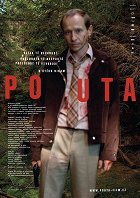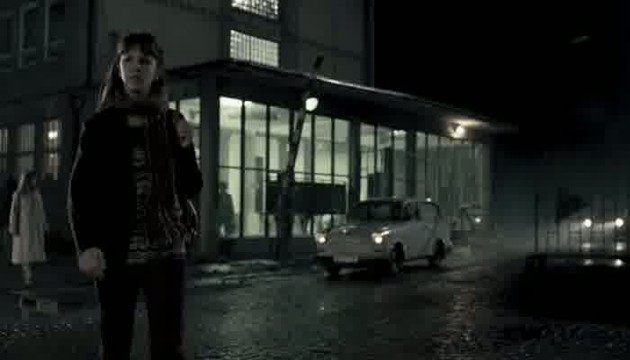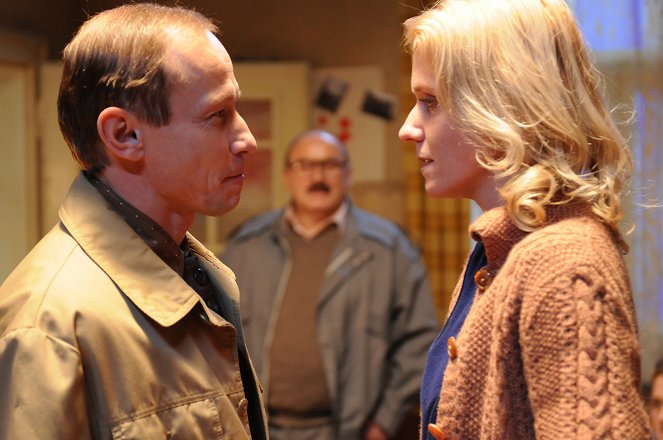Rendező:
Radim ŠpačekForgatókönyvíró:
Ondřej ŠtindlOperatőr:
Jaromír KačerZeneszerző:
Tomáš VtípilSzereplők:
Ondřej Malý, Kristína Tormová, Martin Finger, Luboš Veselý, Lukáš Latinák, Barbora Milotová, Oldřich Kaiser, Ivana Uhlířová, Iva Pazderková (több)Tartalmak(1)
Czechoslovakia, 1982. The totalitarian regime seems to be endless and impossible to end. Antonín, a member of the secret police, is restless in the inside, maybe even a psychopathic violent man full of unarticulated rage and despair. Bored with everything around him, he directs his demons to a seemingly clear but rather an unseizable point – to a young woman called Klára. It is not love or any other kind of pure passion – just a burning desire for an illusion of escape from the grey cage and boredom. Antonín´s absurd effort to get Klára for himself not only turns him against traditional enemies of the regime but also against his own people and the system itself. But if Antonín breaks the rules of the organization in the service of which he is, it is not a civil or political gesture – it is a clearly personal and frantic revolt. (forgalmazó hivatalos szövege)
(több)Videók (1)
Recenziók (10)
Egy két és fél órás pszichológiai játék figurákról, akik egy olyan politikai rendszerben vergődtek, amelynek nem voltak győztesei, amely rákos daganat volt az emberi lélekben, és amelyre még emlékezni is fájdalmas. Kiváló forgatókönyv, a karakterek és szikár összecsapásaik részletes leírásával; maximálisan koncentráló színészek; precíz, lassú, de biztosan a célpontot eltaláló rendezés. Ne törődjünk a kezdeti enyhe nyúlóssággal, az ismerős arcok hiányával és a tévés produkciót idéző vizuális minimalizmussal - itt mindennek, beleértve a hűvösen felvett lakótelepeket vagy a feszült pszichológiai pillanatokat erősítő monoton zenét is, megvan a helye. De vigyázat, ez nem egy élvezetes, sem közönségbarát film. Ez egy nagyon szomorú film, amit a mai, hazánk múltjától érintetlen tinédzser generáció talán el sem hisz...
()
After a long time (since Ševčík’s Normal the Düsseldorf Ripper), I didn’t have trouble forgetting I was watching a Czech film while watching a Czech film and didn’t have to be lenient in my rating. Ondřej Malý is brilliant in the role of that secret police asshole, you can feel the character boiling within him. As a whole, however, Chains felt a little disarrayed; there was something missing for a 100% experience, but great satisfaction nonetheless.
()
Amazing. An industrial and creaking expedition to the Umakart swamp, where sheer resignation and hopelessness are cooked up. Everyone runs away on their own. Tomáš finds a mistress, Antonín decides to steal her from him. A mental cripple with a complex uses his position in the state apparatus and demonstrate that the greatest filth does not stem from the essence of ideology, but rather from the essence of man. Špaček's film has a) an excellent script, b) balanced directing, c) a magnificent sound component, d) Ondřej Malý, Martin Finger and other actors who act three levels above the average. If it was a bit shorter and more straightforward, I wouldn't be afraid of using really comforted superlatives. In any case, I will go so far as to say that Antonín is, in my view, a modern Kopfrkingl. And beating Walking Too Fast will be a lot of hard work this year.
()
Through Štindl's magnificent script, precise and detailed production design (it brought back memories of the ticket punching machines in trams, etc.) and an inventive soundtrack, Špaček tells an interesting, weighty and well-crafted psychological portrait of a brooding bastard who plays at being a demigod from his position as member of the secret police. I consider the final meeting in the dissident's flat to be the best executed and acted scene in a Czech film last year. Ondřej Malý can already prepare a shelf for the Czech Lion.
()
I have heard a comparison of Walking Too Fast with The Lives of Others and that this middle-aged secret police crisis is more believable, intense, and (not only) because of that, much better. I see it exactly the opposite. The German film successfully conveys the bitter experience of the secret police in a communist dictatorship to the whole world. Of course, it is fictional, but it does not go into details that would compromise it with its mismanagement - and above all, it maintains a high level of artistry at all levels. It tells the story through visuals, and for maximum emotional impact, all it takes is the camera's gaze into the eyes of the characters and the revelation of the human character is achieved with a small remark or gesture of the given character. In contrast, Walking Too Fast takes on the unfortunate tradition of Czech television dramas, which at times becomes absurd. The dialogue smoothly transitions into soliloquy and when the words run out, the voice of the narrator is heard from above. Walking Too Fast is instructive, and it is very noticeable how much the screenwriter and director want to semaphorically tell the viewers what to think. Truly good films of international standard can masterfully increase tension by leaving their audience in uncertainty. In Burnt by the Sun, Michalkov portrays the meeting of two old friends and gradually introduces dark tones into the story - but for a long time, he does not reveal which scene the blow will come from. Radim Špaček fails in this aspect. Antonín's colleague has to be portrayed as an exemplary fool, his female colleague is an excellent whore, and he himself, as the "best employee in the department," has the charisma and social intelligence equivalent to that of the oak barn doors. From several scenes, it follows that the creators clearly do not understand the reality of a period that was only 30 years ago. Just as an example, the official threatens the crane operator, when she catches her smoking, that she will immediately get fired. At the same time, there is a desperate lack of people in this unattractive profession on the deformed and practically non-existent job market. What would happen then? Another dormitory will come, where a few pictures from a magazine will be stuck on the wall, and you will get used to a different pub. I remember that in the '80s, we had a crane operator who was a heavy alcoholic, and we could not find a replacement for her. One day, she simply fell from the crane straight onto her head. Blackmailing someone professionally was possible with intellectuals, while for others, it could be done through their children or through the travel restriction clause. Nevertheless, the famous Czech secret police was short-lived for many people. Besides, for the majority of society, the secret police did not represent any specific threat. They were able to move very well within the allowed constraints of the society of that time. It is good to realize that today's average employer, not to mention a specialized company, has more possibilities for surveillance and control of citizens than the famous secret police ever had. They were limited by budget and, above all, by technology. Today, people reveal more about themselves on Facebook than the StB apparatus was capable of processing. But not to criticize only, within the framework of the films about the clumsy Czech effort of "coming to terms with the past," despite all the reservations mentioned above, Walking Too Fast is one the better ones. The film works not as a picture of the past (although some scenes capture it well, such as when the "mighty" secret police eat standing up in a shabby, inhospitable canteen), but rather as a study of the disintegration of the human personality, with an unfamiliar and interesting performance by Ondřej Malý in the lead role. Kristína Farkašová's character also radiates a similar charisma. If there were a film industry in the Czech Republic that worked with talent, both actors would become at least regional stars. All in all, it earns a respectable 3 stars and a 65% overall impression.
()
(kevesebbet)
(több)



Hirdetés